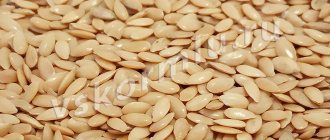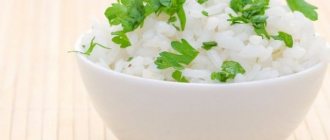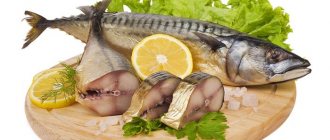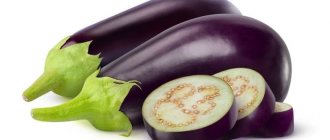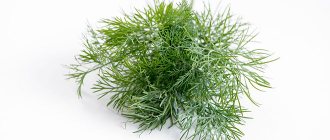Can a nursing mother eat raisins?
Raisins are a storehouse of nutrients. Its valuable composition is useful for a nursing mother. It is important to eat it correctly when breastfeeding, as the product is very sweet. It can cause allergies and gastrointestinal problems.
Whether raisins will benefit or harm the baby depends on how seriously the nursing mother approaches the issue of introducing this product into her diet.
In the first month after birth
The first weeks after birth, the baby’s gastrointestinal tract adapts to a new type of nutrition. The child’s body is not ready to accept hard-to-digest or allergenic foods. Raisins are known to cause bloating. It is forbidden to eat such a product in the first months of a baby’s life in order to prevent colic and other tummy problems.
How many raisins can you eat a day?
The introduction of raisins into the diet is recommended 2–3 months after childbirth. It is best to introduce it in dried fruit compote or boiled form. Raisins can cause negative reactions, so you need to be careful with them.
It is recommended to start introducing raisins with 1 piece in the first half of the day. Rinse it thoroughly before use. Negative reactions, especially from the gastrointestinal tract, most often appear within 1–2 days after the first use. If you have not identified any negative signs, you can gradually increase the dosage. The maximum amount is a small handful of raisins per day. You should not eat the product more than 3 times a week.
| Postpartum period | How much to eat |
| 1 month | Absolutely forbidden |
| 2 month | Not recommended |
| 3 month | Can be introduced into the diet starting with 1 piece in the first half of the day. |
| 4 month | You can increase the dose to several pieces per day. |
| 5–6th month | You are allowed to eat a small handful of raisins several times a week. |
For colic
Raisins are on the list of foods that cause increased gas formation. This is the main reason for its limited introduction into the diet of a nursing mother. In small children, the product can cause colic, therefore, if the baby suffers from such a problem, the presence of raisins in the menu is strictly prohibited.
Reviews
Oksana, 29 years old
I was afraid to eat raisins on GW. Still, it blows, why would a child need that? Closer to six months, I started adding it to cupcakes. Well, the little one had no reaction. I didn't take risks before.
Tamara, 33 years old
She started eating raisins at 2 months. But not dry, I threw a couple of things into compote or into homemade baked goods. There was no rash, the child’s stomach did not hurt.
Marta, 22 years old
I ate raisins, I don’t remember exactly, but at 2 months the baby was born. I regret it very much. I didn’t sleep for 3 days because of my stomach. Haven't tried it again.
Harm of raisins during lactation
Why can’t you eat raisins while breastfeeding in the first month after giving birth? Excessive consumption of raisins in food increases intestinal motility, which is manifested by increased gas formation and bloating.
If storage conditions are violated, dirt, dust, and bacteria accumulate on the surface of the raisins, so the product is thoroughly washed and then poured with boiling water for 15-30 minutes. Poorly washed berries cause dyspepsia: nausea, abdominal pain, loose stools.
In the first weeks after the birth of the baby, it is not recommended to introduce new foods to the mother.
You need to wait for the baby to get used to breast milk and for his digestion to improve. Over time, the production of enzymes necessary for the absorption of a variety of foods will begin. This will take at least three, or even 5-6 months.
What raisins can you eat during breastfeeding?
Everyone knows that raisins come in different varieties: from light to almost black. Its properties depend on the variety of dried grapes. Thus, white varieties are less sweet, they do not cause strong fermentation, and therefore are considered safer.
In dark varieties, the concentration of valuable substances is higher, so it is considered more useful. This type of raisin is made from table grapes. It has a high sugar content. So if you're looking for sweet treats to eat while breastfeeding, check this out.
These raisins are high in calories, so they are not recommended for those losing weight. Large amounts of sugar can negatively affect the baby's gastrointestinal tract. In addition, it can provoke an allergic reaction. Which raisins to choose should be decided by each woman for herself, based on the individual characteristics of herself and her child.
When should you not eat raisins?
In some cases, it is worth holding off on eating raisins.
Contraindications for use are as follows:
- diabetes;
- obesity – contains a lot of calories;
- stomach ulcer;
- heart failure.
It is not recommended to take the product if the baby has colic or an allergic reaction on the body. It is worth postponing consumption for a month if there is increased gas formation in the intestines.
The benefits of raisins during breastfeeding
Like all dried fruits during breastfeeding, raisins contain a lot of useful substances, including:
- organic acids;
- B vitamin;
- vitamins A, C, P, etc.;
- flavonoids;
- amino acids;
- tannins;
- calcium;
- potassium;
- sodium;
- phosphorus;
- bromine;
- iodine;
- fluorine, etc.
This composition ensures a beneficial effect of the product on the body of a nursing woman. First of all, raisins replenish reserves of valuable substances, which has a good effect on the female body, depleted by pregnancy and childbirth. In addition, the product has the following properties:
- helps with constipation;
- strengthens the immune system;
- helps in the fight against viruses and infections;
- removes excess fluid from the body and helps with swelling;
- reduces acidity in the stomach;
- improves mood and overall well-being;
- improves metabolism;
- increases hemoglobin levels;
- helps with depression, which often affects women after childbirth;
- improves kidney function;
- normalizes the functioning of the nervous system;
- improves the functioning of the cardiovascular system;
- strengthens bones and teeth;
- reduces blood pressure;
- helps with headaches, etc.
What is the difference between raisins and grapes?
Raisins are dried grapes. As you know, when drying, moisture evaporates, which means the concentration of other substances per 100 g of product increases. The same happens with grapes. Raisins are considered healthier, but it should be borne in mind that the concentration of sugar in such a product is higher. This may provoke some negative reactions. It should be understood that, due to their watery consistency, you can eat many times more grapes without even replacing them, and eating 100 g of raisins dry is very problematic.
Which raisins are the healthiest?
Almost all raisins sold in stores are treated with chemicals - this helps give the product a more attractive appearance, extend shelf life, and protect the berries from rodents, insects and rot. But any chemicals are dangerous for a child; they can cause allergies, eating disorders, and more serious and severe diseases.
If you have the opportunity, purchase a dryer and prepare healthy dried fruits yourself. But you can also get high-quality raisins in natural conditions - by drying the berries in the sun, although residents of Central Asia are sure that grapes should be dried in the shade. With any method of drying, the grapes need to be laid out on parchment in one layer, checked and turned over every 3 days.
You can try to find a high-quality and safe product in the store. The most natural type of dried grapes are soyagi, bdana, shigani - the berries are dried in the shade in a natural way. These raisins have a rich dark blue color and a matte finish; you can buy them in stores for vegetarians and raw foodists.
If you are unable to find a similar variety of raisins, you just need to remember a simple rule - the more beautiful and shiny the berries look, the more chemicals they contain.
If raisins were stored incorrectly, in a damp room, then putrefactive processes begin in the berries. A high-quality product should be dry, the raisins should not clump together. If you throw a handful of dried grapes onto a hard surface, you should hear a ringing sound.
When and why should you not eat raisins while breastfeeding?
If you eat the product in small quantities, then most likely no negative reactions will occur. They accompany unlimited nutrition. A large amount of sugar means high calorie content of dried fruits, so people who are overweight or those who are losing weight should limit the amount of raisins in their diet.
The treat is an allergen. That is why it should not be eaten in the first months after childbirth. Allergies can occur in a baby even if the mother accepts the product well. Symptoms may include rash, itching, skin spots, cough, watery eyes, etc. If you notice such signs in your baby, immediately discard the product and consult a doctor. Due to the high sugar content, an infant may develop diathesis. Despite this, raisins are safer for breastfeeding than honey.
Raisins can cause colic and stool problems due to sugar, tannins and organic acids, so you should use them carefully when breastfeeding.
In addition, we should not forget that all products may have contraindications for use. In the case of raisins, they are as follows:
- obesity;
- diabetes;
- acute tuberculosis;
- ulcers in the stomach and intestines;
- acute heart failure, etc.
Is it possible to eat foods with raisins?
Ready-made raisin products purchased in the store should not be included in the diet of a nursing woman due to their dubious beneficial properties. Curd mass, curds, and desserts contain additives, dyes, and regulators that will not have the best effect on the child. If the goal is to replenish your diet with vitamins and microelements, then it is better to eat raisins in their pure form. It will bring more benefits to both mother and child.
Women who are breastfeeding include dried grapes in their diet. But you should not consume them excessively to avoid digestive problems.
How to choose a good quality product?
The choice of products during breastfeeding should be approached with special responsibility, as they affect not only your health, but also your baby.
The color of raisins should be natural: light brown when choosing raisins from light grape varieties and dark blue or black, if from dark ones, respectively. The presence of shine indicates that the raisins have been treated with oil or other substances. The product should not be too hard or soft; it should spring back in your fingers.
You should not buy raisins that are stuck together. It can be treated with sugar syrup, like prunes during breastfeeding, for taste, which is not very healthy for nursing mothers. It is best if the product has tails and stalks. Such dried fruits are more useful.
The presence of sourness or foreign flavors should alert you. Real raisins are sweet. If the product is packaged, read what is written on it. The presence of chemical additives during breastfeeding is prohibited.
How to choose the right raisins
Dried fruits are bought in a store or at the market. If they are packaged, look at the production date and storage conditions.
Pay attention to the type of berries. Adhere to the following criteria:
- The berries are dense and elastic, moderately soft. Too watery ones will cause fermentation in the stomach.
- A shiny and bright surface indicates treatment with chemicals for appearance and storage.
- A white coating indicates violations of storage conditions.
- It is better not to buy overdried and hard berries, as there are obvious defects in the production of the product.
- Berries should not leave any coloring substances on your hands.
- Free of foreign odors and tastes.
- The berries are clean and do not contain visible contaminants: soil, dust.
Store raisins in a cool, dry place, preferably in a glass container with a closed lid, for no more than 12 months.
Raisins consumed during breastfeeding should be a high-quality product. Not only an additional source of nutrients, but also not harmful to the mother and child: it will not cause poisoning or intestinal problems. Therefore, follow the recommendations when purchasing the product and storage conditions.
Difference in varieties based on benefits
The varieties of raisins depend on the variety of grape varieties from which they are produced. To choose the necessary dried fruits, you need to know the features:
- The most common type is made from sabza or raisin grapes. The berries are small, seedless, light brown in color. Very sweet in taste. Used in bakery production. Housewives love to add it to culinary products.
- Shigani is the most useful variety. The berries are dark, black-blue or burgundy-brown, seedless. Used in cooking at work and at home.
- Large, beautiful amber-yellow berries with one seed from the Husayne grape variety. Good for making compotes and in cooking.
- The usual variety is dried fruits of olive-yellow color, medium size, with a stone, from which various drinks are prepared.
There are a large number of varieties of raisins and every woman can choose the one that suits her taste the most.
In what form can you eat raisins while breastfeeding?
If you have introduced raisins into the diet and the child has no negative reactions, the product can be eaten either dry or in compotes, boiled, or added to desserts and baked goods. It will perfectly fill the dish with flavor. Sweet raisins can replace sugar in many dishes, making desserts healthier.
Compote
There are many variations of raisin compote. The simplest option would be to cook exclusively from these berries. Don't forget to rinse the fruit before cooking. It is allowed from 3–4 months. Apples, pears, prunes or dried apricots can be added to such a compote during breastfeeding, depending on what products are present in the diet.
The preparation of compotes from dried fruits is described in detail in the article “Compote from dried fruits during breastfeeding.”
Decoction
Raisin decoction is recommended to drink for constipation, for the heart, and immunity. It perfectly replenishes fluid deficiency. Like all dishes based on these dried fruits, introduce it into the diet at 3–4 months.
For more details about it and how to prepare it, watch the video:
Rusks with raisins
Breastfeeding mothers are constantly looking for something healthy and at the same time tasty to pamper themselves with. One of the delicacies during breastfeeding is crackers with raisins. You can buy a raisin loaf at the store and dry the crackers in the oven. But a healthier and tastier option is homemade crackers.
Compound:
- Flour - 300 g.
- Butter (room temperature) - 100 g.
- Sugar - 100 g.
- Eggs - 2 pieces.
- Baking powder - 1 tsp.
- Salt - a pinch.
- Vanilla sugar - to taste.
- Raisins - 100 g.
- Walnuts - 50 g.
Preparation:
- Wash and dry the raisins.
- Beat eggs, sugar, vanilla sugar, baking powder and salt until foamy.
- Slowly pour the oil into the mixture.
- Add flour and stir.
- Add raisins and nuts to the dough and mix again. Nuts can be ground to powder.
- The dough should be soft and sticky.
- Form a loaf.
- Line a baking sheet with parchment and grease with oil.
- Place the loaf in the oven preheated to 200 degrees for 20 minutes. Then cover with foil and bake for the same amount of time.
- Remove the loaf and cool.
- Cut into slices and place in the oven for 20 minutes at 110 degrees.
Raisin cupcake
A nursing mother can also treat herself to a delicious cupcake with raisins, which is easy and simple to prepare. It is not recommended to eat such baked goods until 3-4 months.
Compound:
- Raisins - 100 g.
- Sugar - 140 g.
- Flour - 1 cup.
- Butter - 150 g.
- Eggs - 3 pieces.
- Baking powder - 1 tsp.
- Vanillin - to taste.
Preparation:
- Pour boiling water over the raisins for 10 minutes and strain.
- Beat butter and sugar until smooth.
- Add eggs and vanilla.
- Mix the liquid mixture with flour and baking powder until smooth.
- Add raisins and stir.
- Grease the molds with oil and distribute the dough into them. Do not fill more than ½-⅔ as the cupcakes will grow as they bake.
- Bake for about 20 minutes at 180–200 degrees.
Curd mass, cottage cheese or cottage cheese casserole with raisins
Cottage cheese with raisins is a favorite delicacy of many nursing mothers, because it is not only tasty, but also healthy. It can be eaten raw or made into a casserole.
Compound:
- Curd mass with raisins - 400 g.
- Semolina - 3 tbsp. l.
- Egg - 2 pcs.
- Oil - 1 tbsp. l.
- Sour cream - 5 tbsp. l.
Preparation:
- Mix the curd mass, eggs and semolina.
- Let stand for 20 minutes for the semolina to swell.
- Grease the baking dish with oil and you can sprinkle with semolina or flour to prevent it from sticking.
- Place the cottage cheese in the mold.
- Grease with sour cream.
- Bake for about half an hour in an oven preheated to 180 degrees.
- Let cool before serving.
Cheese with raisins
Curd cheesecakes with raisins have been familiar to us since childhood. Today it is rare to find a natural product in a store. Pay attention to the composition of the product. It should not contain anything except cottage cheese, raisins and sugar. Chemical additives such as flavorings and preservatives are harmful to health. You should not choose cheese curds with glaze or with fillings. They can provoke allergies in the baby.
Raisin buns
There are many recipes for raisin buns. New mothers most often do not have time to tinker with dough, so you can use ready-made store-bought dough. It is best to take yeast. Such baking is not recommended until the baby is 3-4 months old, as flour can cause colic.
Oatmeal raisin cookies
Everyone knows about the benefits of oatmeal. You can use it to make delicious and healthy oatmeal raisin cookies. The presence of dried grapes in the composition delays its introduction into the diet by 3–4 months. Therefore, if you are looking for cookies that you can eat while breastfeeding at an earlier age, pay attention to the article “What cookies can a nursing mother eat.”
Compound:
- Oatmeal - 1 cup.
- Light raisins - 100 g.
- Egg - 1 pc.
- Butter - 200 g.
- Flour - 200 g.
- Sugar - 100 g.
- Cinnamon - optional.
- Baking powder - 0.5 tsp.
Preparation:
- Soak the raisins in warm water for 20 minutes, rinse and dry.
- Beat butter and sugar.
- Mix all ingredients until smooth.
- Add raisins and stir.
- Line a baking sheet with parchment and grease with oil.
- Bake cookies for about 20 minutes at 180 degrees.
- Let cool and only then remove from the pan.
Porridge with raisins
You can diversify your diet with healthy porridge with raisins. Most people consider rice with these dried fruits to be the most delicious. Most cereals are allowed from the day of birth. Adding raisins is allowed from 3-4 months. This porridge is prepared in the same way as regular porridge, but when half cooked you need to add washed raisins. You can also add other dried fruits, such as dried apricots, prunes, dates when breastfeeding.
Recipes for simple dishes with raisins
Dried grapes are eaten separately, for example, with tea or other drinks, instead of sweets and sugar. Compotes and infusions are prepared from it, and it is added to vegetable and meat dishes. In any case, the raisins are thoroughly washed in warm water and then poured with boiling water for 15-30 minutes.
Baked apples with raisins
Delicious and healthy dessert. For cooking, it is better to take green firm apples. Large fruits are cut in half and the core is removed. The lid is cut off from medium and small ones and made into a cup. Place pre-washed raisins inside. Place pieces of butter on top. Place in the microwave or oven. Readiness is determined by the softness of the product.
To prevent the apples from cracking and to maintain their shape, first pierce them with a toothpick in several places.
Advice for a nursing mother: you should not use red varieties of fruit; preference is given to green and yellow apples, so as not to provoke allergic reactions. Often recipes suggest using honey. It is excluded from the diet of a nursing mother for the same reason.
Sugar free raisin muffins
During lactation, it is not advisable for a woman to consume fresh baked goods, high-calorie sweets, or desserts with cream. There is no sugar in the muffin recipe, but banana, carrots, and raisins are added. Products used for baking cupcakes are allowed for both mother and child.
To prepare the baked goods you will need to take:
- 2 chicken eggs;
- 300 g wheat flour;
- 3 tablespoons vegetable oil;
- 100 g raisins;
- half a packet of baking powder;
- half a teaspoon of salt;
- 2 bananas;
- 2 carrots.
Mash the bananas into a homogeneous mass, add oil, eggs, pure raisins, grated carrots, mix thoroughly. Combine dry ingredients: flour, salt, baking powder. Sift. Add to liquid ingredients. Knead the dough. Pour into cupcake or muffin tins. Bake in a preheated oven at 180 degrees for 35 minutes. Cool, remove from molds.
Sugar-free raisin muffins are a healthy dish for those who are watching their health and weight.
Drinks for nursing mothers
Any liquid drunk 30 minutes before putting the baby to the breast increases lactation. And a drink made with dried fruits is doubly healthy.
A decoction of dried grapes is prepared as follows. Take 5 heaped tablespoons of washed berries. Place them in a thermos and pour a liter of boiling water. Leave for 1 hour and the drink is ready.
Exactly the same infusion is prepared in a saucepan. The ingredients are boiled for 15 minutes, then infused for 1 hour.
For dried fruit compote, you need to take raisins, dried apricots, prunes, apples in equal proportions - 200 g each. Pour 3 liters of water. Bring to a boil and cook for 15-20 minutes. Then cover with a lid and let sit for at least 1 hour.
Several useful recipes for your notebook
Can nursing mothers eat raisins in their natural form? Of course, but using dried grapes you can prepare many delicious and healthy dishes.
Oatmeal with raisins
This porridge is a delicious breakfast that will provide you with energy for a long time and help prevent digestive problems.
How to cook:
- Pour a glass of oatmeal into a small saucepan, pour boiling water so that the water completely covers the oatmeal.
- Cook the porridge covered over low heat for 10 minutes.
- Wash 30 g of raisins, chop 7 walnuts or almonds.
- Add everything to the porridge, season with a little honey and cinnamon.
Baked apples
A simple, healthy and very tasty dessert.
Peel and core several large apples, place 1 tbsp inside. l. dried grapes, a piece of butter. Pour some apple juice or water into a baking dish and place the fruits. Bake in the oven at 190 degrees for 35–40 minutes.
Healthy salad for a snack or light dinner
This dish improves the functioning of the digestive system and provides the body with vitamins and microelements.
Chop 300 g of cabbage into thin strips, add grated medium carrots and apple, chopped herbs, 50 g of raisins. For dressing, use low-fat sour cream or natural yogurt.

